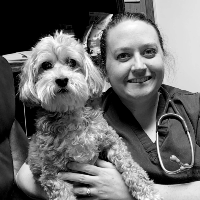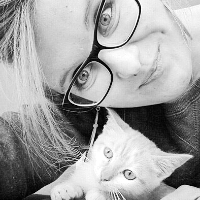42% of Pet Owners Cut Back on Pet Spending Amid Pandemic

In 2018, TheLending partnered with Pollfish to research how much Americans spend on pet ownership. Given that our economy has drastically changed since then due to a global pandemic, we’ve decided to revisit that research.
This time we commissioned The Harris Poll to conduct a survey on whether COVID-19 impacted how much pet owners were able to spend on their furry or scaly children. In this national pet owners survey, we asked more than 1,400 pet owners on which pet they spend the most each month, and whether the impact of COVID on their lives forced them to cut back on that spending.
The “tail” of COVID cutbacks
According to the study commissioned by TheLending and conducted online by The Harris Poll, 42% of pet owners had to cut back on pet spending because of COVID-19, and 15% had to cut back on essentials like pet food and veterinary care.
When it comes to age demographics, younger pet owners seem to have been hit even harder. Sixty-one percent of 18- to 34-year-old pet owners were forced to cut back on their pet spending, compared with only 12% of pet owners 65 and older.
Employed pet owners are more likely to have cut back on pet spending due to the pandemic compared to those without a job (52% vs. 27%), which is somewhat unexpected and may merit further study.
Despite those cutbacks, millennial pet parents still spend more on pet supplies and pet services than most older categories. Specifically, 18- to 34-year-olds spend on average $133.20 per month on their most expensive pet, only outdone by the $137 per month spent by the 35- to 44-year-old age group.
As far as the reason younger adults spend more on pet care than older adults, there are certainly stereotypes about millennials who own pets either delaying or avoiding parenthood in favor of treating their pets like kids.
Pet ownership statistics
As you might expect, each type of animal has its own specific needs and associated costs. Dog owners who say their dog is their most expensive pet spend more on that pet each month compared to cat owners who say their cat is their most expensive pet, spending on average per month $117.20 and $81.40 respectively.
It makes sense, as dogs can be expensive. Between dog food, vet care, pet insurance, and other costs, your pooch might take a bite out of your purse. But can you put a price on the well-being that comes with slobbery love?
Apparently, you can, and on average, it’s $117.20 per month.
Vet on it
Owner surveys can provide a sense of the big picture, but it’s still helpful to speak to those on the frontlines of pet wellness for additional context.
“In a COVID pandemic reality, we have noticed a big decline in the number of veterinary appointments,” says Dr. Claudine Sievert, a Kansas veterinarian. “I think that the main reasons for this are owners who want to cut the costs and owners who do not want to be exposed to COVID.”
Sievert tells us the primary decline has been in regular check-ups or less urgent issues like allergies and teeth cleanings. Instead, she finds owners waiting until a more serious issue arises before bringing in their pets.
While that tracks with our findings, not every vet’s experience reflects our research. Texas veterinarian Dr. Sara Ochoa says that she has seen an increase in appointments since COVID started.
“Many people were at home for long periods of time and were more aware when something [was] just not right with their pet,” explains Ochoa. Additionally, she points out that many people adopted pets during the pandemic, as ASPCA research has shown, which provides an interesting wrinkle to the current picture of pet spending, given that there are so many more owners spending money on pets, even as individual owners have had to cut back overall.
Looking back
In 2018, we found that pet owners dished out an average of $126.19 each month on the pet they spent the most. In our 2021 survey, that number dropped to an average of $109.10 per month.
That previous research also looked at the U.S. pet industry on a state-by-state spending basis and found that pet owners in Delaware spent the most per month, at $311.90. That’s a big jump from Idaho pet owners, who spent on average just $20 per month.
COVID has been a difficult time for billions of people around the world, and while most pets can avoid catching it, they may still be feeling the effects in their cat food quality and toy budget.
2021 Survey Methodology
This survey was conducted online within the United States by The Harris Poll on behalf of TheLending from July 26 - 28, 2021 among 1,428 pet owners. This online survey is not based on a probability sample and therefore no estimate of theoretical sampling error can be calculated. For complete survey methodology, including weighting variables and subgroup sample sizes, please contact oppu@thelending.pro.
2018 Survey Methodology
The 2018 survey was conducted online within the United States by Pollfish on behalf of TheLending from February 21-March 1 among 1,100 pet owners. Pollfish utilizes the Random Device Engagement method to conduct their surveys. More information can be found on Pollfish’s methodology page.

Sara Ochoa, DVM graduated from St. George’s University Veterinary School in 2015. Since then, she has been at a small and exotic animal practice in Texas.

Dr. Claudine Sievert is a Doctor of Veterinary Medicine who provides nutrition and naturopathy services. She has been cited as an expert pet care specialist by more than 1,000 animals in her career and specializes in publishing about animal behavior, nutrition, and natural pet health practices through nationally recognized media outlets such as Reader's Digest, CatPet, and printed media.






